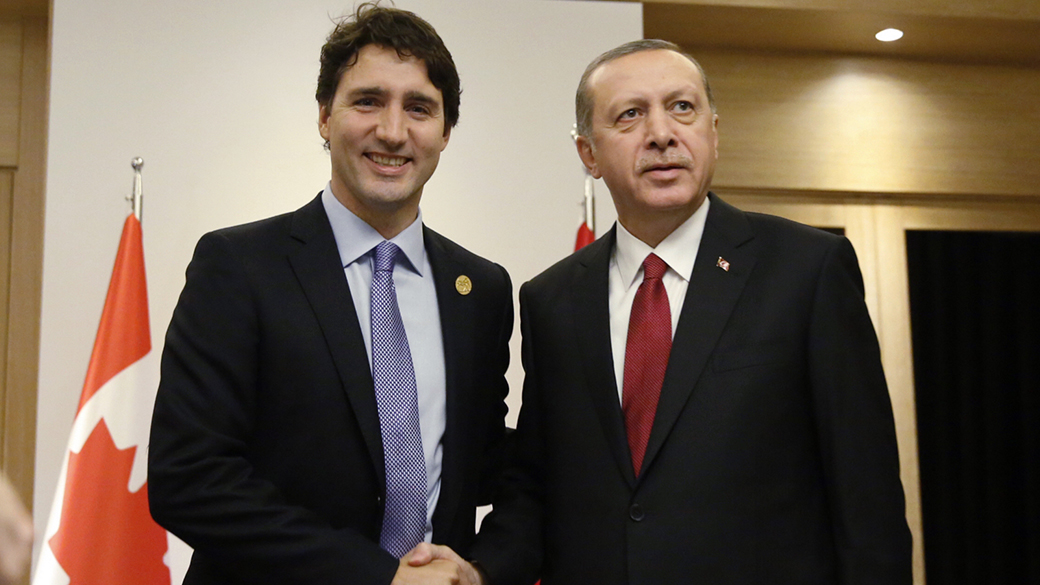As soon as Turkey indicated that it was withdrawing its opposition to Sweden’s entry into NATO, some speculative reports suggested that the US sale of F-16 fighter jets and the Canadian decision to lift the arms embargo on Turkey had encouraged that decision.
Following negotiations behind closed doors between the leaders of the two nations before a NATO summit in Lithuania, Turkey agreed to enable Sweden to join the alliance.
“Completing Sweden’s accession to NATO is a historic step that benefits the security of all NATO allies at this critical time,” said NATO chief Jens Stoltenberg.
Although the sudden “change in mind” was attributed to the big bait handed over by the US and Canada. The report published in Middle East Eye on July 11 said that two unnamed sources accessed by it had said two primary reasons aided Ankara’s decision.
One, the Biden’s decision to use the sale of its F-16 fighter jets and other auxiliary equipment as leverage to persuade Ankara. The second, however, was stated as a decision by Canada to lift an arms embargo on Turkey that has been in place for a few years. The arms embargo was imposed in response to Turkey’s military offensive in northern Syria in 2019.
The news triggered an intense discussion on social media since Ottawa has been generally reluctant to lift the embargo despite several pleas.
Spox for Foreign Affairs Minister Mélanie Joly denies arms embargo against Turkey is scrapped. "Canada and Turkey continue to engage in frank exchanges on our bilateral, economic and commercial relations. Export controls for Turkey remain in place," Emily Williams told Globe. https://t.co/f430oPcQE6
— Steven Chase (@stevenchase) July 11, 2023
However, the news is believed to have been categorically denied by the Canadian government. In a recent statement, the Canadian Ministry of Foreign Affairs spokesperson declared, “It is not true that the arms embargo against Turkey has been lifted. Export controls against Turkey continue.”
The speculations reportedly started when Turkish President Erdogan and Canadian Prime Minister Justin Trudeau met at the NATO Leaders’ Summit. However, the Canadian government and some local media outlets emphasized that the meeting between President Erdogan and Prime Minister Trudeau represents the continued communication between the two nations.

The ongoing embargo, however, highlights the hostilities between Turkey and Canada and casts doubt on future negotiations and collaboration. While not confirmed by the Canadian government, military analysts believe that Ottawa might finally lift the embargo in the future.
However, some anti-Turkey netizens on Twitter made a case against any such decision by Canada by stating that the embargo would mean Ottawa supports and agrees with killing Kurds, Armenians, and Arabs by Turkish drones.
Although Canada and Turkey are significant NATO allies, they have been on a collision course for several years over Ankara’s intervention and support for military conflicts in the Middle Eastern region. Some military experts on Twitter noted that the embargo was briefly lifted in 2020 without being publicized, and a repeat of that could be imminent.
There is no indication, however, that Ottawa, which closely integrates its decisions with the UK, will end the embargo any time soon. EurAsian Times explains why the embargo was imposed in the first place.
Why Canada Imposed Arms Embargo On Turkey
While the Turkish military was conducting operations to clear the militias from areas close to its border region, the UK, Canada, and some other NATO members suspended the granting of arms export licenses for weapons that could be used to target Kurdish militias in Syria and stopped exports of arms to Turkey.
Ottawa initially imposed an embargo in response to Turkey’s military offensive in northern Syria in 2019. In June 2020, it largely reversed course and authorized the sale of drone optics following high-level negotiations with Turkey. Turkey relied on Canada for advanced drone optics produced in Ottawa.
However, in October 2020, Armenian officials presented the remains of a Turkish Bayraktar TB2 combat drone that had been shot down over the disputed area by Armenian forces. The UAV was outfitted with a cutting-edge camera and target acquisition system by L3 Harris WESCAM in Burlington, Ontario.
These findings spurred federal authorities to investigate allegations that Turkey had broken its end-user contract with Canada by transferring Canadian technology to Azerbaijan. Following these reports, Canada suspended 25 export permits for military equipment and technology to Turkey in October and four more in November.
The Canadian Foreign Affairs Minister of the time, Marc Garneau, said, “Following this review, which found credible evidence that Canadian technology exported to Turkey was used in Nagorno-Karabakh, today I am announcing the cancellation of permits that were suspended in the fall of 2020.”
At the time, Garneau, however, added that Ottawa and Ankara “need to initiate a dialogue mechanism between Canadian and Turkish officials to build confidence and greater cooperation on export permits to ensure consistency with end-use assurances before any further permits for military goods and technology are issued.”
“Turkey is an important NATO ally, and applications related to NATO cooperation programs will be assessed on a case-by-case basis,” he added.
Last summer, when the UK announced its decision to lift the arms embargo, the then-Turkish Foreign Minister Mevlut Cavusoglu predicted that Canada might join forces with Britain to lift the embargo as the war drags on and Turkish military assistance gains prominence.
The licenses taken away by the embargo were necessary to supply vital components for Turkish defense initiatives, such as its renowned armed combat drones and jets. The problem highlighted Ankara’s continued reliance on imported parts, despite efforts to develop its defense sector.
With UK’s decision came a renewed hope that Canada would also relent. However, with another refusal from the Foreign Affairs Ministry, the embargo isn’t going anywhere, and Ankara most likely has just one reason to celebrate: the F-16s.
- Contact the author at sakshi.tiwari9555 (at) gmail.com
- Follow EurAsian Times on Google News